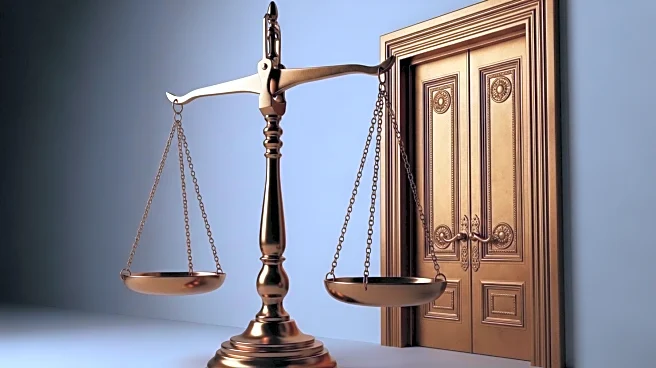What's Happening?
As the partial government shutdown continues into its third week, some Republican senators are considering the elimination of the Senate filibuster to bypass Democratic opposition. The filibuster requires 60 votes to pass a government funding bill, necessitating bipartisan support. Despite interest from some Republicans, Senate Majority Leader John Thune of South Dakota and John Barrasso of Wyoming have expressed their opposition to this idea. The filibuster has historically moderated legislation and frustrated presidents, serving as a check on the more volatile House. The current situation sees Democrats benefiting from the filibuster, which they previously sought to eliminate under President Joe Biden.
Why It's Important?
The debate over the filibuster is significant as it highlights the ongoing struggle between legislative efficiency and minority rights in the Senate. Eliminating the filibuster could lead to more partisan legislation, impacting the balance of power and the legislative process. For Republicans, removing the filibuster might offer short-term gains but could backfire when they are in the minority. The filibuster's role in moderating legislation is crucial, and its removal could lead to more extreme policies. The current shutdown underscores the challenges of bipartisan cooperation, with potential consequences for government operations and public services.
What's Next?
If Republicans decide to pursue filibuster reform, it could lead to significant changes in Senate operations and legislative dynamics. The decision would likely provoke strong reactions from Democrats and could influence future elections. The ongoing government shutdown may pressure lawmakers to find alternative solutions, potentially leading to negotiations or compromises. The filibuster debate may continue to be a contentious issue, with implications for future legislative agendas and party strategies.
Beyond the Headlines
The filibuster debate raises questions about the balance between majority rule and minority rights in a democratic system. Its removal could shift the Senate towards a more majoritarian institution, affecting the nature of U.S. governance. The historical use of the filibuster to moderate legislation highlights its role in maintaining stability and preventing abrupt policy shifts. The current political climate, marked by polarization, may influence the future of the filibuster and its impact on legislative processes.









